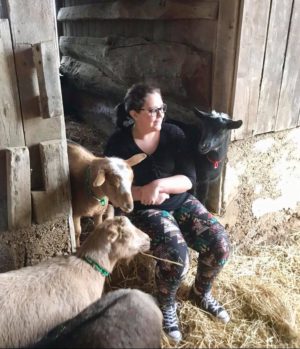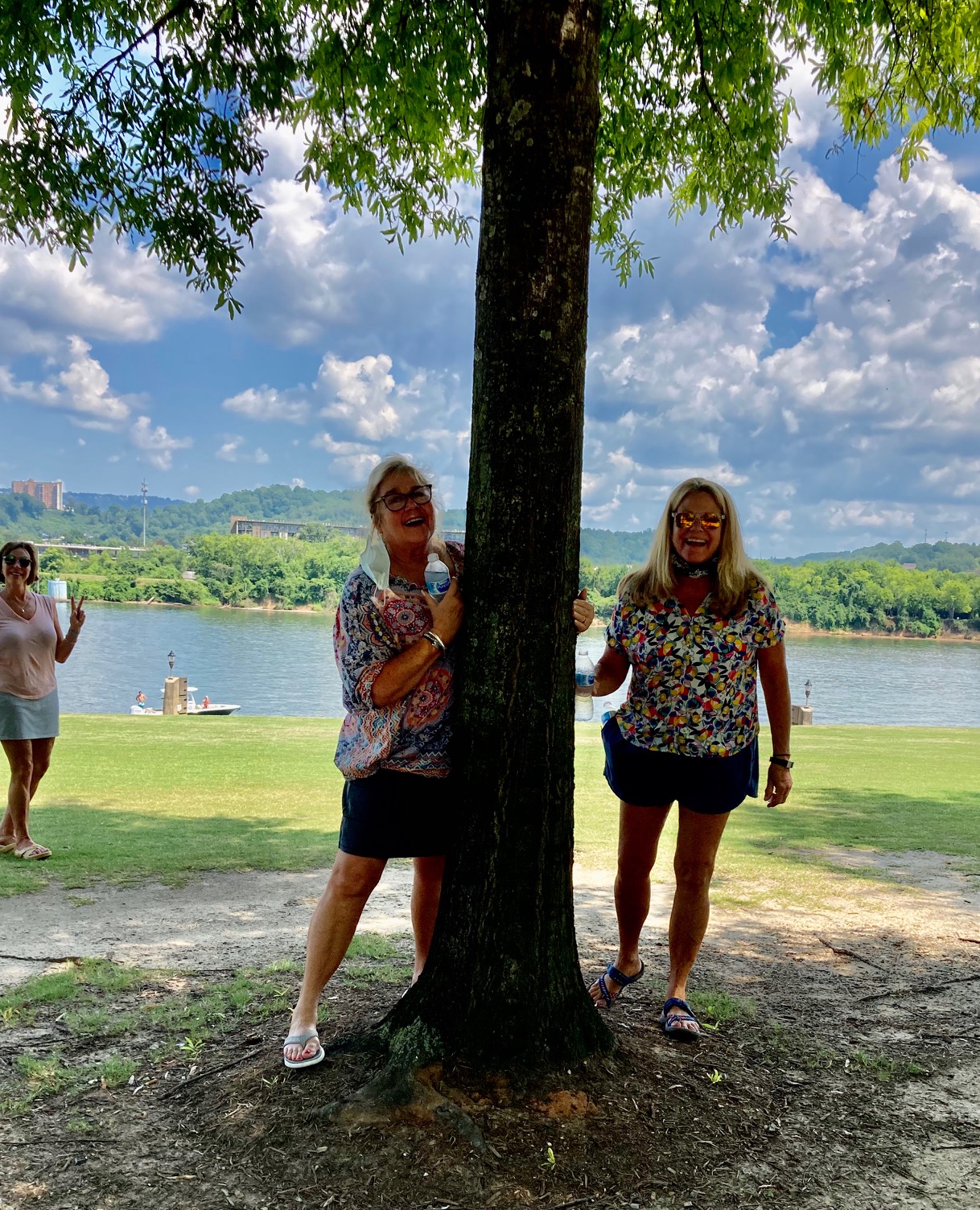Tips for Teaching Our Grandchildren to Appreciate Nature
This is a sponsored post written by me on behalf of The Nature Conservancy for IZEA Worldwide. All opinions are 100% mine.
When I was a little girl my grandfather would sit on the porch with me and we would listen to the birds chirping. He could identify every bird we heard. He could also tell me what kind of trees were in the yard and how to identify them by their leaves. I didn’t realize it then but he was the first person to teach me about nature and to give me an appreciation of my surroundings.
Parents and grandparents are usually the first and most important teachers in a child’s life. A child is never too young to learn to love and appreciate nature.

- Take them outside. It doesn’t matter if you live in the middle of a city or on a farm in Kentucky, there are things we can appreciate about nature where ever we are. Find a park. Watch the sky. Talk about the clouds and the moon and the stars. Young children are receptive and eager to learn.
- Get down and dirty with them. Sit on the ground and let them crawl around and look for bugs, seeds, rocks, or different types of grass. Dig holes and let them find worms. Talk about what worms do for the ground. Get a plastic jar and poke holes in the top and let them catch bugs to put in it, study and then release. They will love exploring, even if it’s only in your back yard.
- Go for a walk and help them collect leaves and pick flowers. When you get home you can research the trees and talk about what kind of trees and flowers grow where and why. My grandchildren wanted to know why we don’t have palm trees in Kentucky. This started a great conversation about climate and the environment.

- Find a state park and spend a day visiting. Take a picnic and before you go read about the park and investigate which hiking trails are suitable for children (some are too long or difficult). Talk to them about what makes being outdoors great and what happens during the change of seasons.
- Children are naturally drawn to animals. Talk about what animals live where and what they eat. Discuss what happens when they don’t get enough food? Buy bird seed and hang a bird feeder near a window and research what type birds come to visit and what kind of seed they like best. Don’t be surprised if squirrels eat your bird food! Talk to children about why this might happen.

- Buy coloring books related to nature and color with them while talking about the animals or scenery you are coloring. Talk to them about the many different colors in nature and point out how many animals are a color that blends in with their habitat. Ask the children to guess why they blend in with the trees or grass.
- Search out nature shows on television to watch together. Be sure they are age appropriate. No grandparent wants to have to explain why a baby animal is being eaten by a tiger or lion.
- Search out nature shows on television to watch together. Be sure they are age appropriate. No grandparent wants to have to explain why a baby animal is being eaten by a tiger or lion.
- Teach your grandchildren about the importance of taking care of nature. Show them examples of places where people did not respect nature and talk about what it does to the animals and plants who once lived there. You can show them on the computer but seeing it in real life makes a bigger impression.
- Take them to a landfill and talk to them about recycling. Young children can help separate plastics, glass and paper products.
- Show them pictures of what our country looked like hundreds of years ago and how it has changed as open lands have been developed. Discuss why loving and appreciating nature is important. Come up with ideas together of ways your family can care for the Earth.
- Tell them about environmental charities like The Nature Conservancy (TNC) and visit their website to learn how to get involved. Read about what they do and how to get involved. Talk about why it’s important to donate to organizations that help us take care of our world. Make a donation in honor of your grandchild or come up with a fundraising project to do together and donate today to TNC.
Children are the future and teaching them while they are young to love and appreciate nature might just make the world a better place for our grandchildren’s children. Donating to TNC is another way you can ensure that you’re doing your part to protect our planet for the next generation. Won’t you help and take action and donate today?




Thank you so much. Those sheep are Babydoll sheep and they are the sweetest sheep ever!
These are all great tips, Teresa. I didn’t think about the landfill, that’s a good one. I love the surrounded by sheep photo.